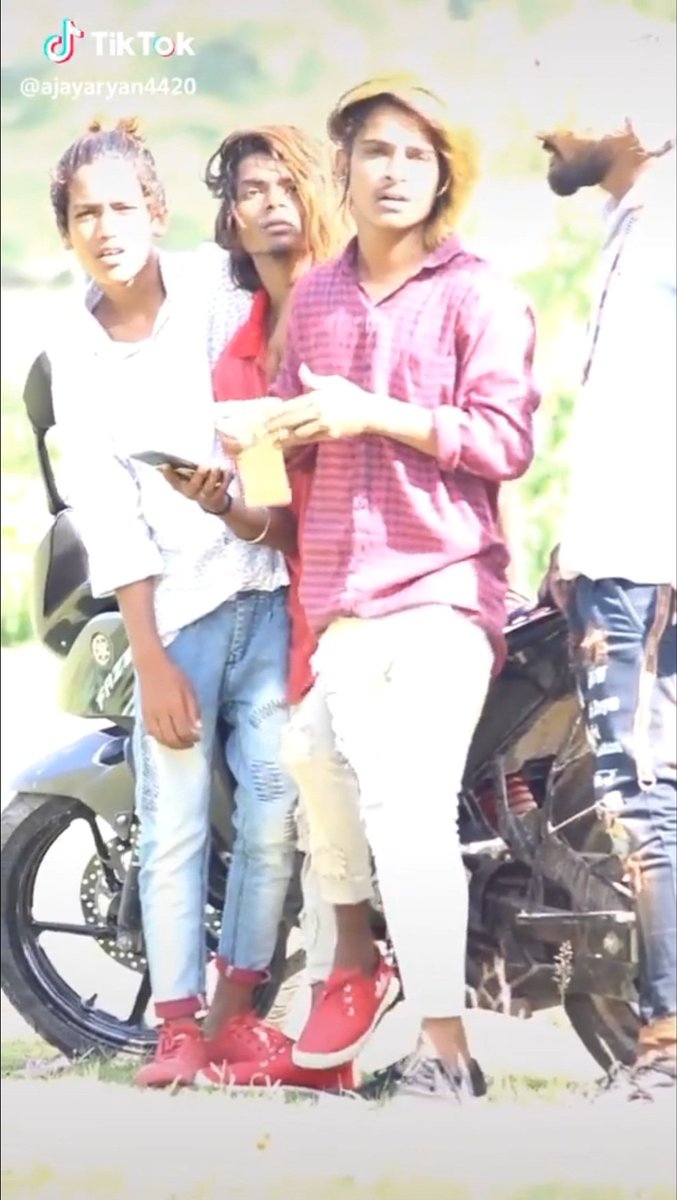
Lecturer (Indic language/s), Leiden University (Netherlands), KHS (Agra), JNU (Delhi), Hindi, Urdu, Linguistics, Lit, भाषा, भाषाविज्ञान, साहित्य 🇮🇳 🇳🇱 ✍️🚲
How to get URL link on X (Twitter) App


 The idiom comes from the original meaning of tukkā, a headless arrow used for archery practice or playing by children. Since such an arrow is directionless, hitting the target or having any effect on something is a matter of pure chance.2/3
The idiom comes from the original meaning of tukkā, a headless arrow used for archery practice or playing by children. Since such an arrow is directionless, hitting the target or having any effect on something is a matter of pure chance.2/3

 This rubbing produced a white foam like substance. which was washed away, before cutting the Khira. I realized this knowledge about Cucurbitacin was even mentioned in poetry of 16th century poet Rahim. 2/
This rubbing produced a white foam like substance. which was washed away, before cutting the Khira. I realized this knowledge about Cucurbitacin was even mentioned in poetry of 16th century poet Rahim. 2/

 and cultural practices.
and cultural practices.https://twitter.com/kamleshksingh/status/1844768610683695457After the burial Al-Fātiḥa (the 1st chapter of Quran) is recited in the name of the deceased. And then they go about 40 paces away from the grave, they recite the Fatiha in the joint names of all the dead in the cemetery, this being known as the Da'ira or 'cemetery' Fatiha. 2/n

https://twitter.com/LanguageWala/status/1807673976719585486
 In Laskari language (it was a Maritime language which evolved on ships plying in Indian ocean with words drawn from H/U, Malay, English, Chinese, Malayalam, Tamil etc.) the word taṇḍēl टंडेल itself came from a Dravidian language, most probably from Tulu or Telugu or Kannada.2/n
In Laskari language (it was a Maritime language which evolved on ships plying in Indian ocean with words drawn from H/U, Malay, English, Chinese, Malayalam, Tamil etc.) the word taṇḍēl टंडेल itself came from a Dravidian language, most probably from Tulu or Telugu or Kannada.2/n

https://twitter.com/mishradarsh/status/1804812711865332060
 word to Marathi language as bebaḍā बेवडा which has two meanings in Marathi -
word to Marathi language as bebaḍā बेवडा which has two meanings in Marathi - 
https://twitter.com/TheKawalOberoi/status/1770333809176617446
 London & edited by T.H. Baker. It is clear that this term is coined sometime in mid 19th century as @OED points it out. According to OED in 1864 2/n
London & edited by T.H. Baker. It is clear that this term is coined sometime in mid 19th century as @OED points it out. According to OED in 1864 2/n 

 Rawalpindi means the village of Rawals. The first element rāval in the name Rawalpindi रावलपिंडी is derived from the name of Jogi tribe who founded this village. This is recorded in Mughal emperor Jahangir's autobiography Tuzk-e-Jahangiri. 2/n
Rawalpindi means the village of Rawals. The first element rāval in the name Rawalpindi रावलपिंडी is derived from the name of Jogi tribe who founded this village. This is recorded in Mughal emperor Jahangir's autobiography Tuzk-e-Jahangiri. 2/n

https://twitter.com/PrashantProhit/status/1761289369229357345
 In the idiomatic usage, tilāñjali conveys the sense of renouncing, relinquishing or giving up something or someone. Although it sounds like a Sanskrit word, it is not available in Sanskrit literature. 2/n
In the idiomatic usage, tilāñjali conveys the sense of renouncing, relinquishing or giving up something or someone. Although it sounds like a Sanskrit word, it is not available in Sanskrit literature. 2/n

 The term Chapri is specially used for young Indian tiktokers, youtubers and instagrammers who have flooded the internet with their unique but sometimes cringe videos. 2/n
The term Chapri is specially used for young Indian tiktokers, youtubers and instagrammers who have flooded the internet with their unique but sometimes cringe videos. 2/n

 The 4 children who were travelling in that ill fated airplane were raised by their grandmother, Fatima Valencia, with whom they spoke in a variety of Witoto. Witoto/Uitoto is a family of Amazonian languages which are spoken by indigenous people in Colombia, Peru & Brazil. 2/n
The 4 children who were travelling in that ill fated airplane were raised by their grandmother, Fatima Valencia, with whom they spoke in a variety of Witoto. Witoto/Uitoto is a family of Amazonian languages which are spoken by indigenous people in Colombia, Peru & Brazil. 2/n 


 Contrary to popular perception of mosquito curtains or nettings being modern day innovations, mosquito screens/curtains have been in use in Egypt, China and India since time immemorial. 2/n
Contrary to popular perception of mosquito curtains or nettings being modern day innovations, mosquito screens/curtains have been in use in Egypt, China and India since time immemorial. 2/n
https://twitter.com/me_s_h_u_b_h/status/1622223974733316097The 8th day of the dark half of Śrāvaṇa month when